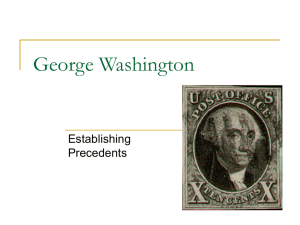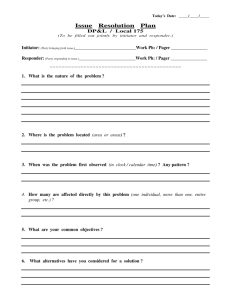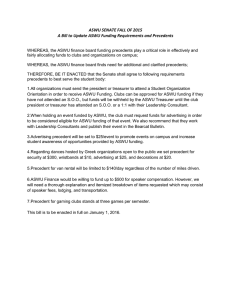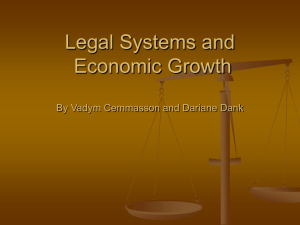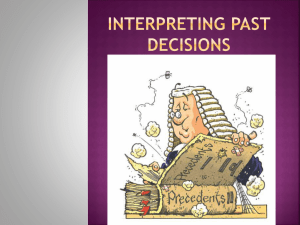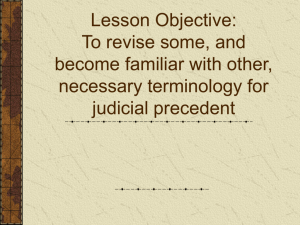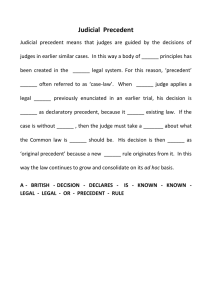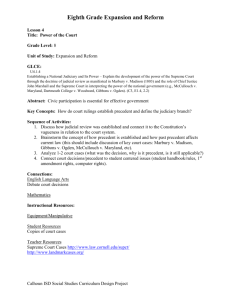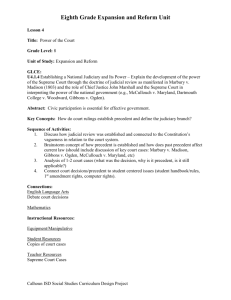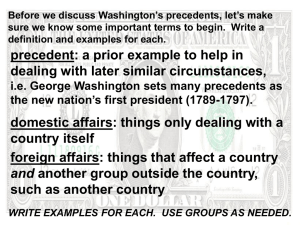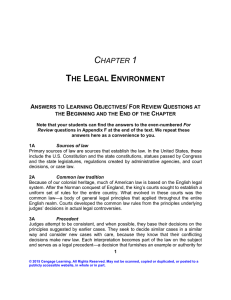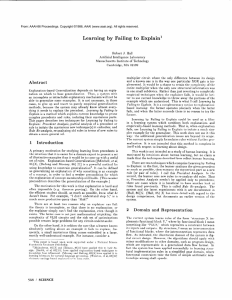PRECEDENT
advertisement
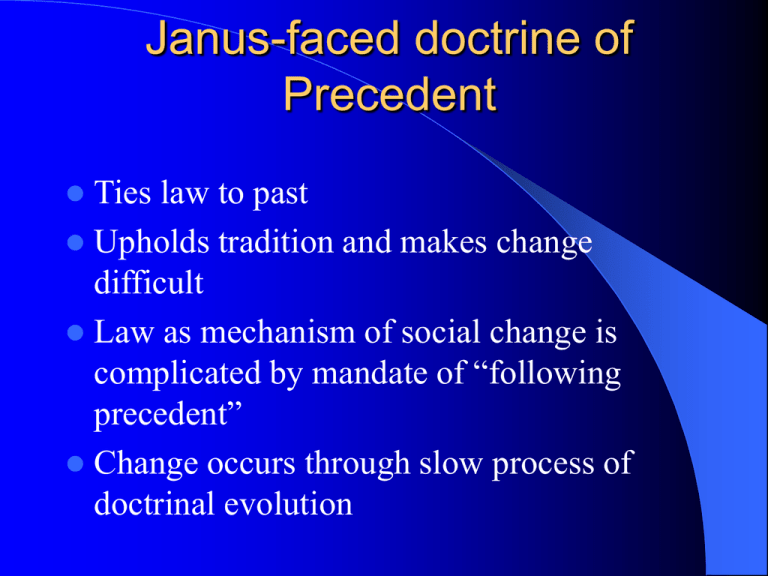
Janus-faced doctrine of Precedent Ties law to past Upholds tradition and makes change difficult Law as mechanism of social change is complicated by mandate of “following precedent” Change occurs through slow process of doctrinal evolution PRECEDENT: What is it? Stare Decisis Applied in Appellate cases – Like cases decided in like manner – Judges must follow past decisions – Lawyers must cite and account for good and bad past decisions Precedent is “double-sided” One “side”–process that capitalizes on past cases that support conclusion you want to advocate Other “side”-process that helps to deemphasize or ignore past cases whose rulings stand in the way of your argument Both good and bad precedents must be raised and explained With “good” precedents, you would want to…. Emphasize legal ruling by judge in past case De-emphasize the facts of past case Explain how this case-legally is like past ones With “bad” precedents, you would want to…. Emphasize the facts of past case Emphasize the differences between this situation and past ones Explain why law articulated in past cases should not apply here Precedent implies that… Judges evaluate past cases and make objective decisions Judges are “Neutral” Law is a “scientific/rational” process But…. Law is contextual There is subjectivity in judicial reasoning Many non-objective factors affect outcomes Such as – – – – Quality of lawyers Class, race, gender, nationality of parties Nature of crime Geographical and cultural context State v. Pendergrass Citation-2 Dev. &B., N.C. 365 (1837) Facts Issue Ruling Reason Joyner v. Joyner 1862 Judge Pearson Divorce case Issue-whether the fact of husband’s “whipping” in and of itself are grounds for divorce Answer-no Because-wife must be subject to husbanddoctrine of Coverture State v. Black 1864 Judge Pearson Criminal case Law will not invade the domestic curtain unless permanent injury or excess of violence Why-pro bon publico What precedent did it uphold? What did it modify? What did it overrule? State v. Rhodes 1868 Judge Reade Assault and Batterycriminal Only the fact that this is battery between husband and wife makes it non actionable Careful review of precedent Issue-is this valid Ruling-no battery Reason-hands of policyautonomy of family government where “trifling” violence Opened the door to new rulings State v. Mabrey 1870 Judge Reade Detailed presentation of facts-criminal case Upheld past doctrine Distinguished case by claiming that the facts are “savage and outrageous” Not a case of trifling family violence State v. Oliver 1874 Judge Settle Overruled old law that husband has right to whip his wife Repudiation of doctrine of coverture Upheld precedent that courts will not invade domestic curtain in trivial case Case by case approach
